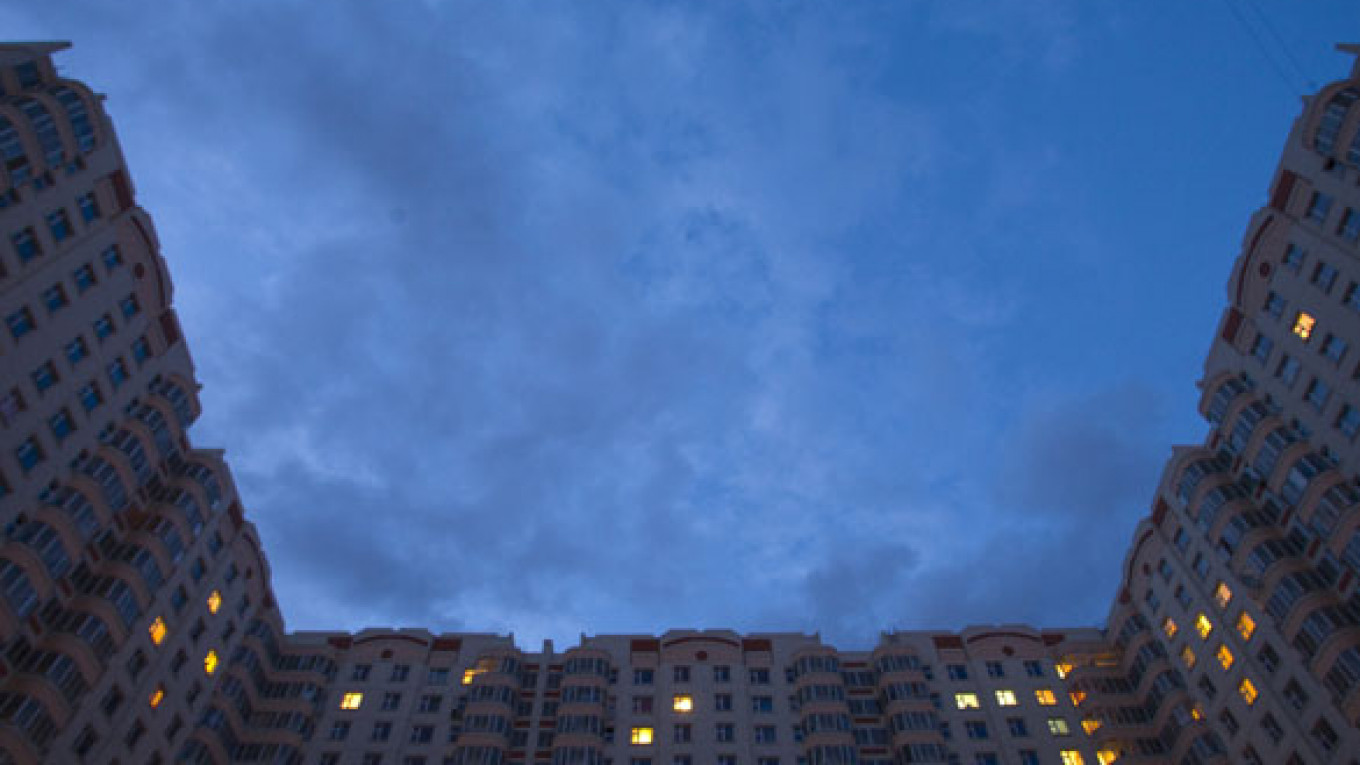More Russians than foreigners now rent high-end apartments in Moscow for the first time since at least 2007 as an effect of policy changes by multinational corporations, a survey said.
Foreign companies either closed their Moscow offices in the rough times of the crisis or hired Russians to replace foreign staff, Penny Lane Realty said in a survey. As a result, the share of foreigners seeking luxury homes dropped to 49 percent last month.
“Despite the fact that the expensive high-end housing market has traditionally targeted foreigners, who have basically formed this market, it is more in demand with Russian customers today,” Vadim Lamin, head of the segment at Penny Lane Realty, said Monday.
Foreign interest in upscale housing edged up 2 percent in 2008 from the previous year to represent 64 percent of demand, the survey showed. But it dropped in 2009 when expats accounted for 54 percent of the deals.
Month-on-month comparison indicated that the number of foreign tenants of high-end apartments slid by 25 percent last month compared with 2008, according to the survey.
The reason is that many foreign companies replaced foreign middle-level managers at their Moscow offices with Russian specialists, who have their own housing in the capital, Lamin said.
“It's easier and cheaper to find a Muscovite who owns an apartment than to rent housing for a foreign employee,” he told The Moscow Times.
Many international firms also closed their local offices after the economic crisis broke out, the survey said. But even as Russia's economy is rebounding after the crisis, companies are still cautious sending their employees to Moscow, it said.
Natalya Kats, managing director of real estate company Usadba, said she noted a slight drop in foreign clients as well. The number of rentals involving foreigners decreased by no more than 10 percent this year from the pre-crisis 2008, she said.
But Kats insisted that it was a temporary slide rather than a trend because the economy is picking up steam again and beckons as many foreigners as before. In what may blur statistics, foreigners now more often rely on relocation companies that represent them in rentals, she said.
In addition to seeking fewer deals, foreigners aren't ready to pay as much as they used to, Penny Lane said. Most international companies cut their rental budgets to allow for monthly rent that starts at $3,000 and doesn't exceed $8,000 per apartment, Lamin said. Russian tenants are willing to fork out $7,000 to $10,000 per month, he said.
Well-heeled Russian businessmen don't flinch at paying $15,000 to $20,000 and more, he said, adding that such customers use expensive apartments to demonstrate their social status.
Foreigners don't usually ask for much more than a certain level of comfort, he said.
A Message from The Moscow Times:
Dear readers,
We are facing unprecedented challenges. Russia's Prosecutor General's Office has designated The Moscow Times as an "undesirable" organization, criminalizing our work and putting our staff at risk of prosecution. This follows our earlier unjust labeling as a "foreign agent."
These actions are direct attempts to silence independent journalism in Russia. The authorities claim our work "discredits the decisions of the Russian leadership." We see things differently: we strive to provide accurate, unbiased reporting on Russia.
We, the journalists of The Moscow Times, refuse to be silenced. But to continue our work, we need your help.
Your support, no matter how small, makes a world of difference. If you can, please support us monthly starting from just $2. It's quick to set up, and every contribution makes a significant impact.
By supporting The Moscow Times, you're defending open, independent journalism in the face of repression. Thank you for standing with us.
Remind me later.






